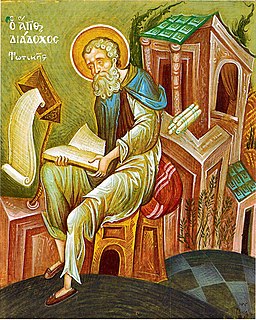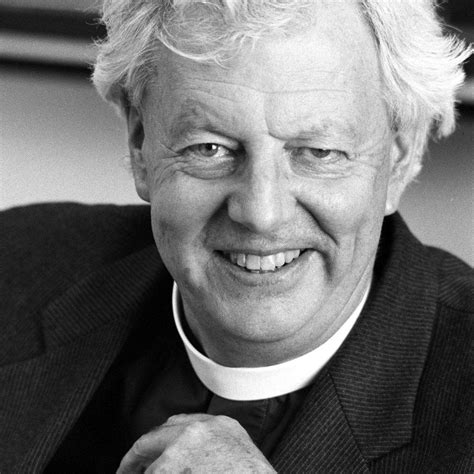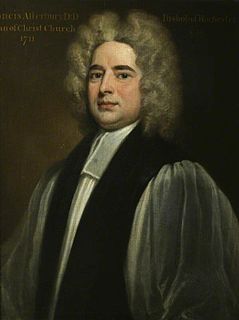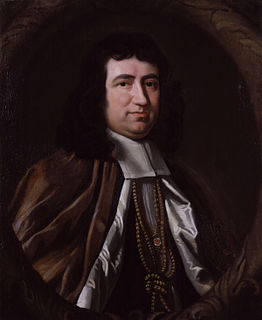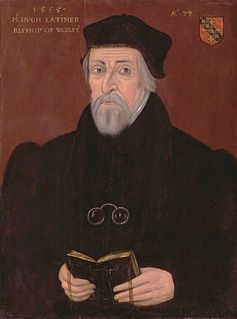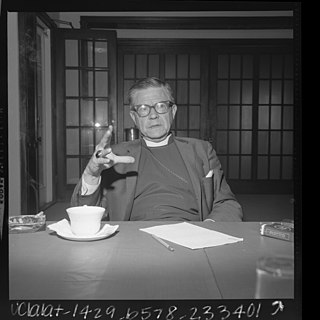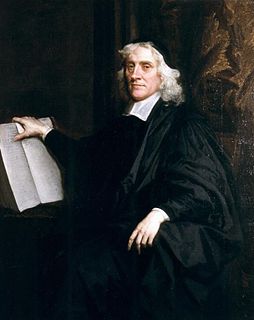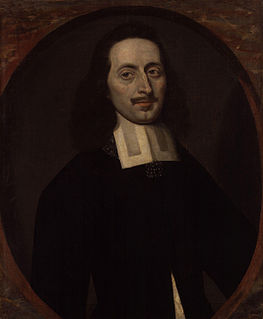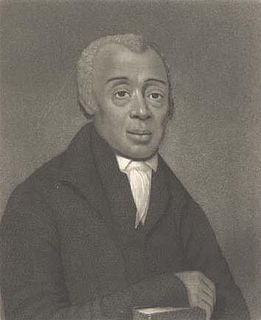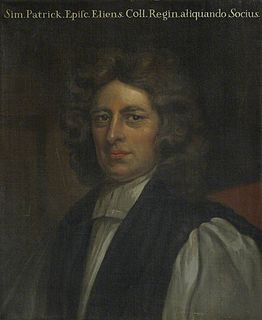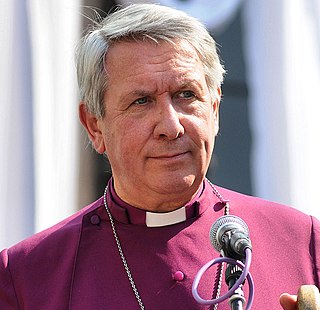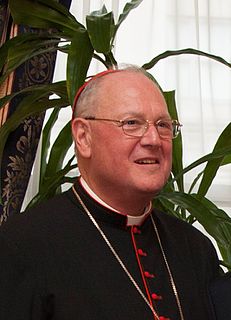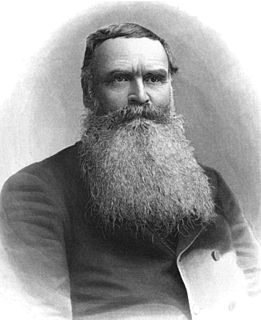A Quote by Pope Dionysius
...if we know God our knowledge of... everything will be brought to perfection, and, in so far as is possible, the infinite, divine and ineffable dwelling place (cf. Jn. 14:2) will be ours to enjoy. For this is what our sainted teacher said in his famous philosophical aphorism: 'Then we shall know as we are known' (I Cor. 13:12), when we mingle our god-formed mind and divine reason to what is properly its own and the image returns to the archetype for which it now longs.
Related Quotes
'Now we are the sons of God'. This is the starting point of adoption. However, 'it does not yet appear what we shall be: but we know that, when He shall appear, we shall be like Him; for we shall see Him as He is' (I Jn. 3:2). This is the perfection of adoption of sons and renewal which God bestowed on us in Christ, and of which John says in his Gospel that, 'Christ gave power to become the sons of God, even to them that believe on His name: which were born, not of blood, nor of the will of the flesh nor of the will of man, but of God' (Jn. 1:12-13).
To Whom does our God say, 'in our image' (Gen. 1:26), to whom if it is not to Him who is 'the brightness of His glory and the express image of His Person' (Heb. 1:3), 'the image of the invisible God' (Col. 1:15)? It is then to His living image, to Him Who has said 'I and My Father are one' (Jn. 10:30), 'He who has seen Me has seen the Father' (Jn. 14:9), that God says, 'Let us make man in our image'.
I do not know of any divine commands. I do know of most important human ones. I do not know the needs of a god or of another world. . . . I do know that women make shirts for seventy cents a dozen in this one. I do know that the needs of humanity and this world are infinite unending constant and immediate. They will take all our time our strength our love and our thoughts; and our work here will be only then begun.
When our Lord says, 'I have not spoken of Myself' (Jn. 12:49), and again, 'As the Father said to Me, so I speak' (Jn. 12:50), and 'The word which you hear is not mine, but the Father's Who sent Me' (Jn. 14:24), and in another place, 'As the Father commanded Me, even so I do' (Jn. 14:31), it is not because He lacks deliberate purpose or power of initiative, nor yet because He has to wait for the preconcerted key-note, that He employs language of this kind. His object is to make it plain that His own will is connected in indissoluble union with the Father.
No one has yet discovered or ever shall discover what God is in His nature and essence... we shall, in time to come, 'know as we are known' (I Cor 13:12). But for the present what reaches us is a scant emanation, as it were a small beam from a great light - which means that any one who 'knew' God or whose 'knowledge' of Him has been attested to in the Bible, has a manifestly more brilliant knowledge than others not equally illuminated. This superiority was reckoned knowledge in the full sense, not because it really was so, but by the contrast of relative strengths.
...one's movement towards the divine reaches its end only when one reaches God... 'The true Sabbaths are the rest laid up for the people of God' (Heb. 4:9). God can 'bear these sabbaths' (cf. Is. 1:13) because they are true. And the one 'in which the world is crucified' (Gal. 6:14) reaches these sabbaths of rest because he has clearly turned away from worldly things and returned to his own spiritual resting place. The one who arrives there will no longer be moved from his place, for there he finds quiet and tranquility.
At the beginning of the struggle the holy commandments of God must be fulfilled with a certain forcefulness of will (cf. Mt. 11:12); then the Lord, seeing our intention and labour, will grant us readiness of will and gladness in obeying His purposes. For 'it is the Lord who makes ready the will' (Prov. 8:35 LXX), so that we always do what is right joyfully. Then shall we truly feel that 'it is God who energizes in you both the willing and the doing of His purpose' (Phil. 2:13).
By `God` I mean godliness; the whole existence is full of godliness. And when you will come to know, you will not see a god standing before you, you will see the trees as divine, the rocks as divine, the people as divine, the animals as divine. God is spread all over the place, from the pebble to the star, from the blade of grass to the sun - it is all divine.
This must be our belief when we have a correct knowledge of our own self, and comprehend the true nature of everything; we must be content, and not trouble our mind with seeking a certain final cause for things that have none, or have no other final cause but their own existence, which depends on the Will of God, or, if you prefer, on the Divine Wisdom.
Many have said much about love, but you will find love itself only if you seek it among the disciples of Christ. For only they have true Love as love's teacher. 'Though I have the gift of prophecy', says St. Paul, 'and know all mysteries and all knowledge? and have no love, it profits me nothing' (I Cor. 13:2-3). He who possesses love possesses God Himself, for 'God is love' (I Jn. 4:8). To Him be glory throughout the ages. Amen.
...the Lord said as He drew near His passion, 'Now is the Son of man glorified, and God is glorified in Him. If God is glorified in Him, God will also glorify Him in Himself; and He will glorify Him at once' (Jn. 13:31-32). From This it is clear that divine gifts follow sufferings endured for the sake of virtue.
And when someone suggests you believe in a proposition, you must first examine it to see whether it is acceptable, because our reason was created by God, and whatever pleases our reason can but please divine reason, of which, for that matter, we know only what we infer from the processes of our own reason by analogy and often by negation.
There is One God and One Mediator between God and man, the man Jesus Christ (cf. I Tim. 2:5). For He still pleads even now as man for my salvation; for He continues to wear the Body which He assumed, until He make me a god by the power of His Incarnation; although He is no longer known after the flesh (cf. II Cor. 5:16) ? I mean, the passions of the flesh, the same, except sin, as ours.
There is nothing small about our God, and when we understand God we will find out that there ought not to be anything small about us. We must have an enlargement of our conception of God, then we will know that we have come to a place where all things are possible, for our God is an omnipotent God for impossible positions.
Greatly ought we to rejoice that God dwells in our soul; and more greatly ought we to rejoice that our soul dwells in God. Our soul is created to be God’s dwelling place, and the dwelling of our souls is God, who is uncreated. It is a great understanding to see and know inwardly that God, who is our Creator, dwells in our soul, and it is a far greater understanding to see and know inwardly that our soul, which is created, dwells in God in substance, of which substance, though God, we are what we are.






